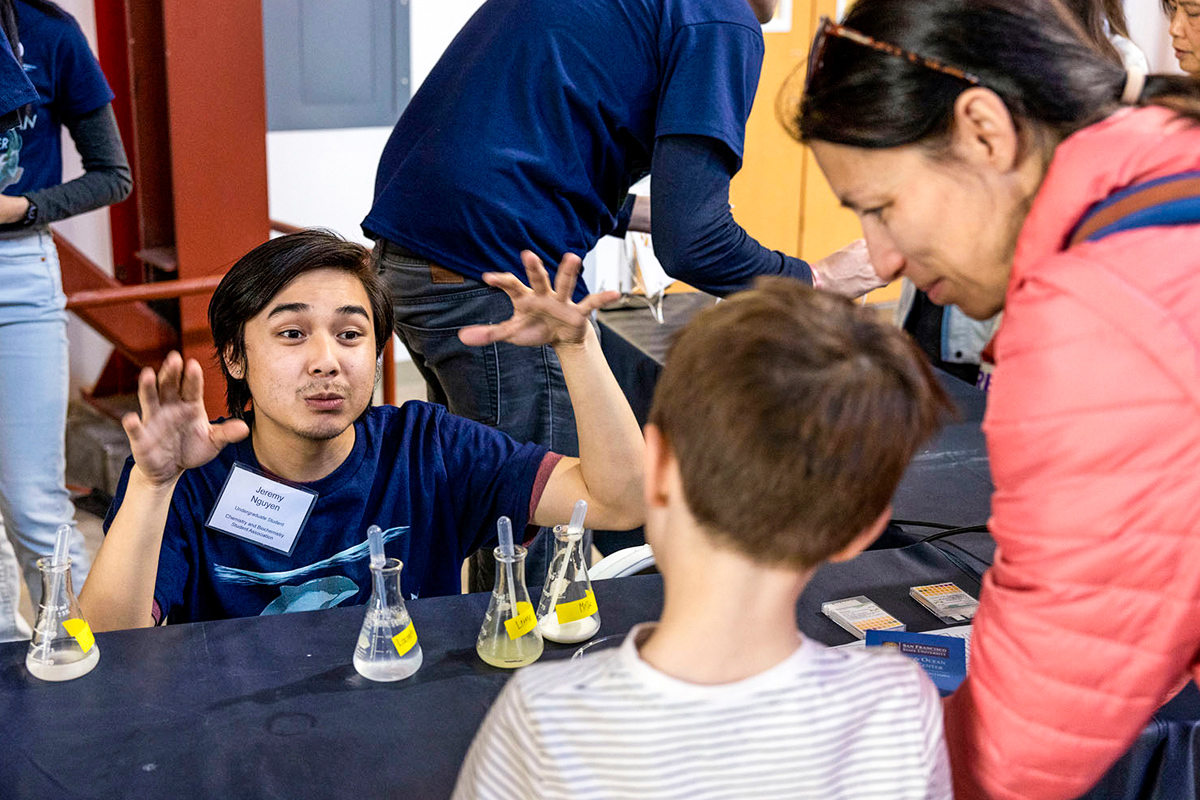
This issue of SF State Magazine focuses on the environment and how the University and its faculty, staff, students and alumni are working to understand, celebrate and protect it. We faced our own conservation challenge when putting the issue together, however: If we included everything the University does related to the environment, we’d have to add a lot of pages. Instead we’ve had to pick and choose, with some quick highlights here.
1.
Researchers at SF State’s Estuary & Ocean Science Center — the only academic research facility situated on San Francisco Bay — study habitat restoration, algal blooms, the ocean carbon cycle and much more. In the process, they educate and train the science-based problem solvers of tomorrow. At an annual open house, community members get to spend the day learning about the center — and what they can do to help protect the Bay.
2.
Formed in 2008, the University’s Office of Sustainability integrates sustainability into academics, operations and student activities across campus. Since then, dozens of energy efficiency projects have been implemented, including lighting retrofits in the parking garage, motion sensor-activated LED lighting in offices and lighting system automation. Despite growth in both the on-campus residential population and the square footage of University facilities, electricity usage and water usage have both been significantly reduced over the last few years.
3.
New buildings on campus meet stringent energy efficiency requirements. The Science & Engineering Innovation Center — a huge, state-of-the-art hub of classrooms, labs, machine shops and makerspaces due to open in 2024 — is designed to achieve a Leadership in Energy and Environmental Design (LEED) Gold certification. That status was also recently awarded to the University’s George and Judy Marcus Hall for the Liberal and Creative Arts Marcus Hall in recognition of its sustainable site development, water savings, energy efficiency and materials selection.
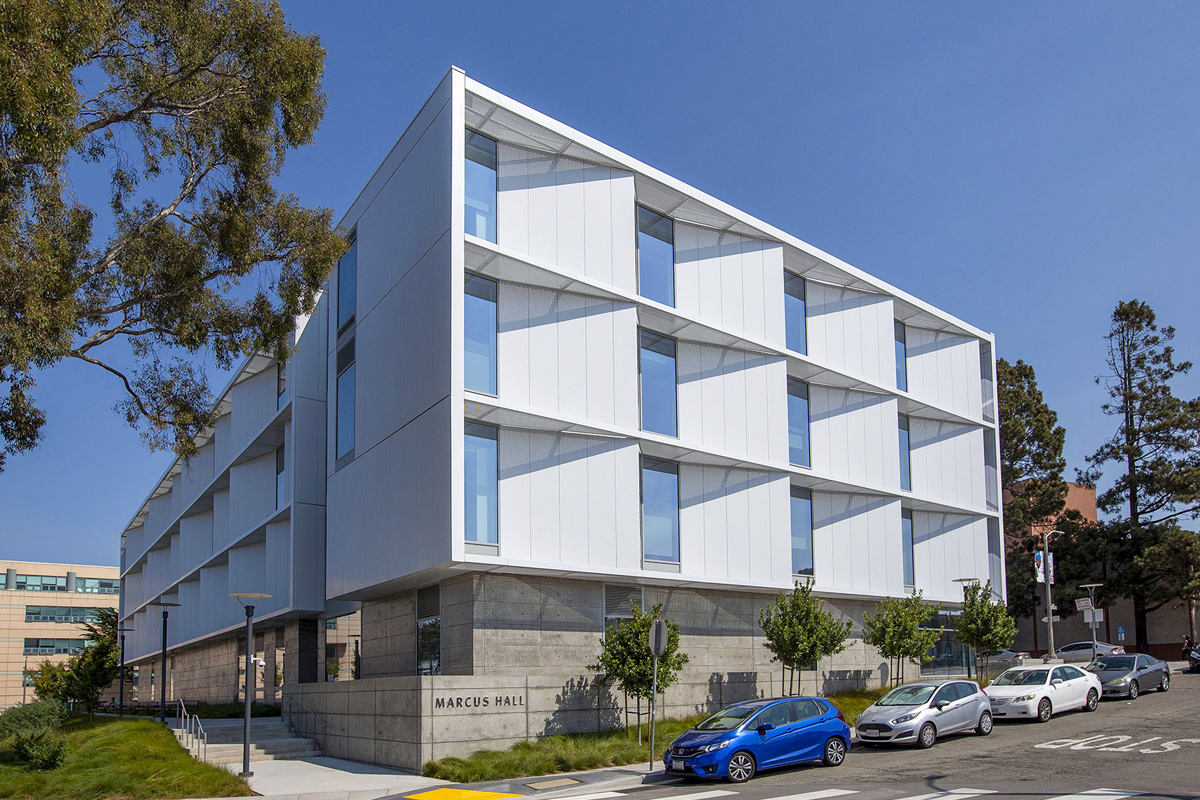
4.
“Parks and Outdoor Recreation Resources” and other Recreation, Parks, and Tourism courses incorporate service-learning opportunities through projects with an environmental focus. For example, this spring Professor Pavlína Látková and her students from “Ecotourism Principles and Practices” participated in an ecological restoration project at Heron’s Head Park in the Bayview district of San Francisco, removing invasive species and planting native plants. “Growth Through Adventure” immerses students in the outdoors. “Inclusive Shared Outdoor Adventures” takes students both with and without disabilities cycling, kayaking, sailing and more.
5.
In SF State’s historic College of Ethnic Studies, the environment is a core component of the wide-ranging curriculum emphasizing justice, leadership and activism. Enrollment fills fast in “Race, Activism and Climate Justice,” a general education class offered in the Race and Resistance Studies Department dedicated to exploring environmental justice. Numerous courses address disparities in health among different peoples caused by the environment, particularly in the Ethnic Studies master’s program. With an emphasis on “land,” the American Indian Studies Department presents Indigenous perspectives on ecology from history to today.
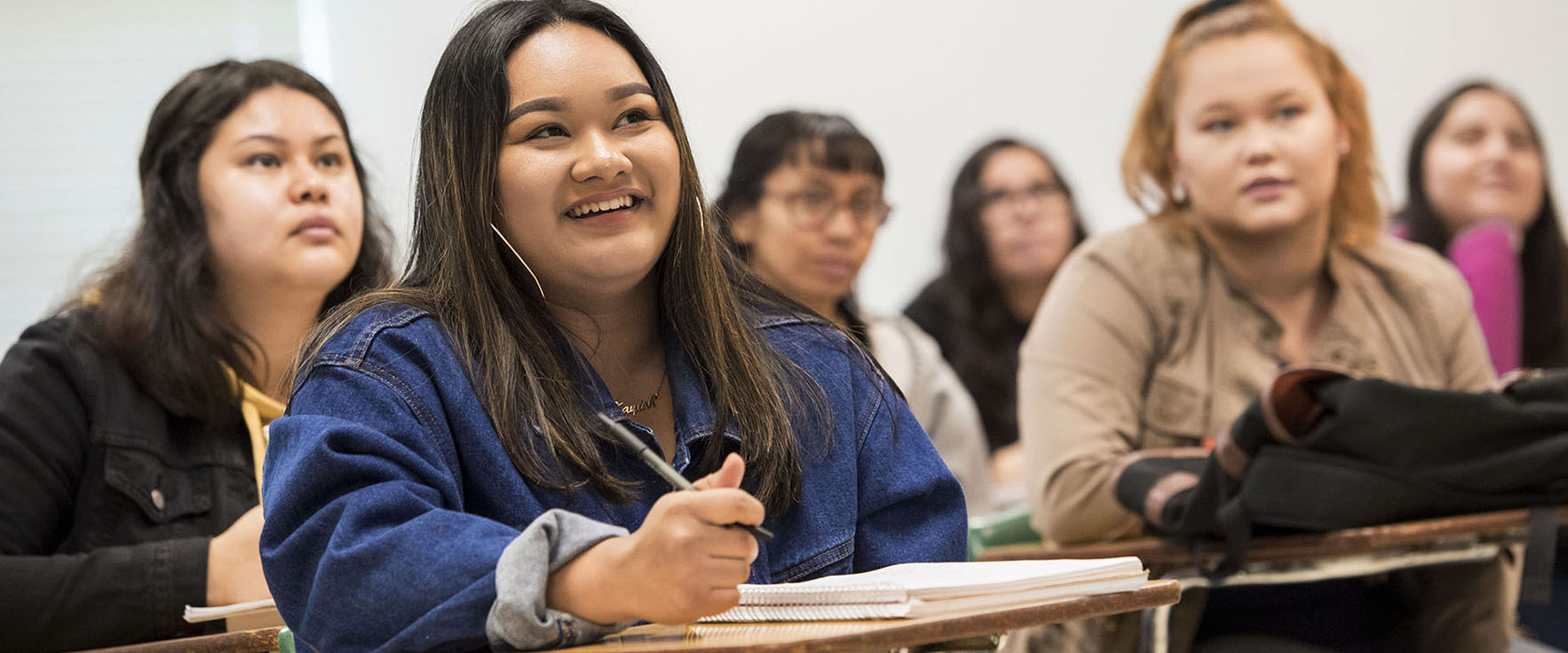
6.
Nature can be healing and is considered medicinal by many Black, Indigenous and People of Color (BIPOC) communities. This is something SF State researchers are exploring in their Hood to Woods study funded by the National Institutes of Health. The project’s goal is for marginalized communities to reclaim nature for anti-racist healing. Informed by lessons learned from SF BUILD, student researchers who are part of these communities collaborate with community organizations to use cultural knowledge and practices to develop nature programs that strive for health equity.
Each April, the University community honors Earth Week with events across campus. This year’s celebration included free food, workshops, a climate symposium and an inaugural film festival.
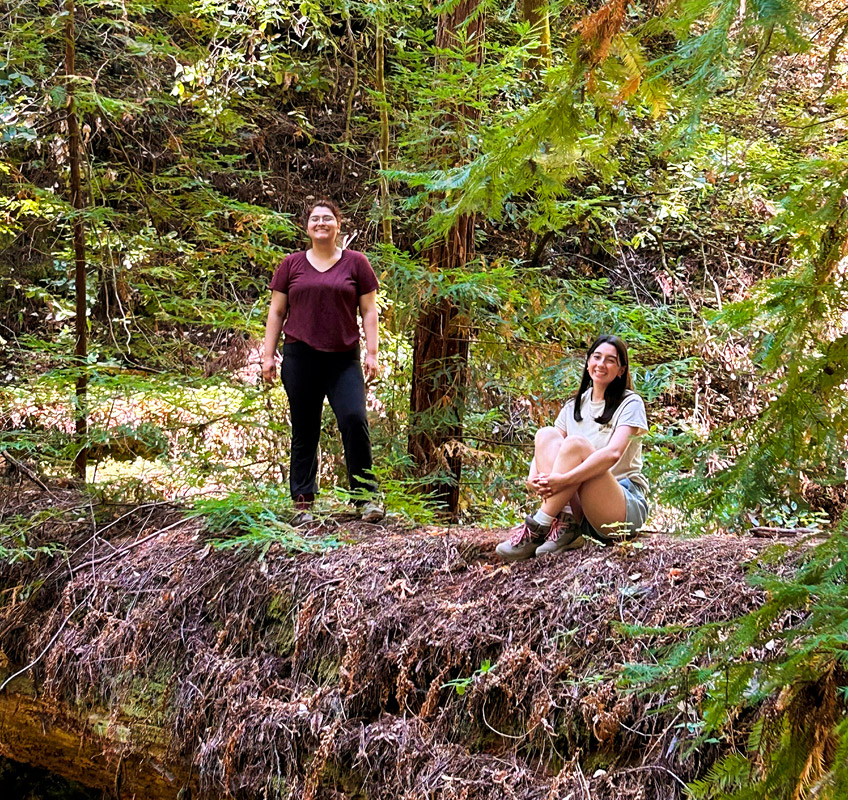
7.
In August, SF State launched a School of the Environment (SotE) to meet the evolving needs of students studying and researching environmental topics. The new school merges the departments of Earth and Climate Sciences and Geography and Environment with the Environmental Studies degree programs. “In the past, we’d have students who were interested in the environment but didn’t know which degree or career path to follow,” said Autumn Thoyre, one of three SotE co-directors. “We can guide them more effectively with this change.”
8.
Inspired by the Black Lives Matter movement, the exhibit “Clearly Polluted: The Fight for Environmental Justice in the Bay Area” featured photographs and oral history recordings of local activists (such as filmmaker Doug Harris, pictured). Originally presented in the University’s Global Museum in late 2022, the exhibition can be experienced online at the Global Museum website.
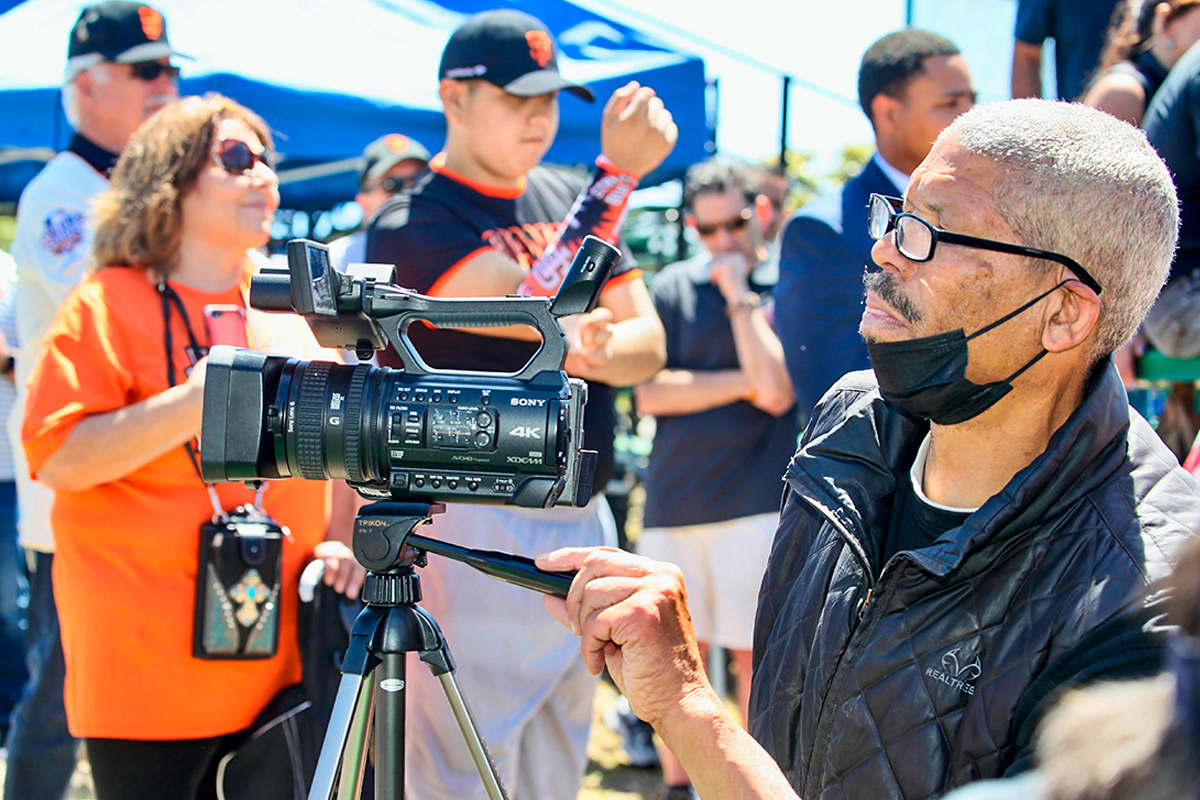
9.
The National Science Foundation (NSF) named SF State Associate Professor of Civil Engineering Jenna Wong an Early CAREER grant recipient to study the resilience of green infrastructure. Her proposal focuses on the practice of incorporating nature, like a vertical greenery and green roof structure, into a building’s design. Wong’s five-year grant of $510,000 will help inform green infrastructure guidelines and equip SF State students with skills for an environmentally conscious workforce.
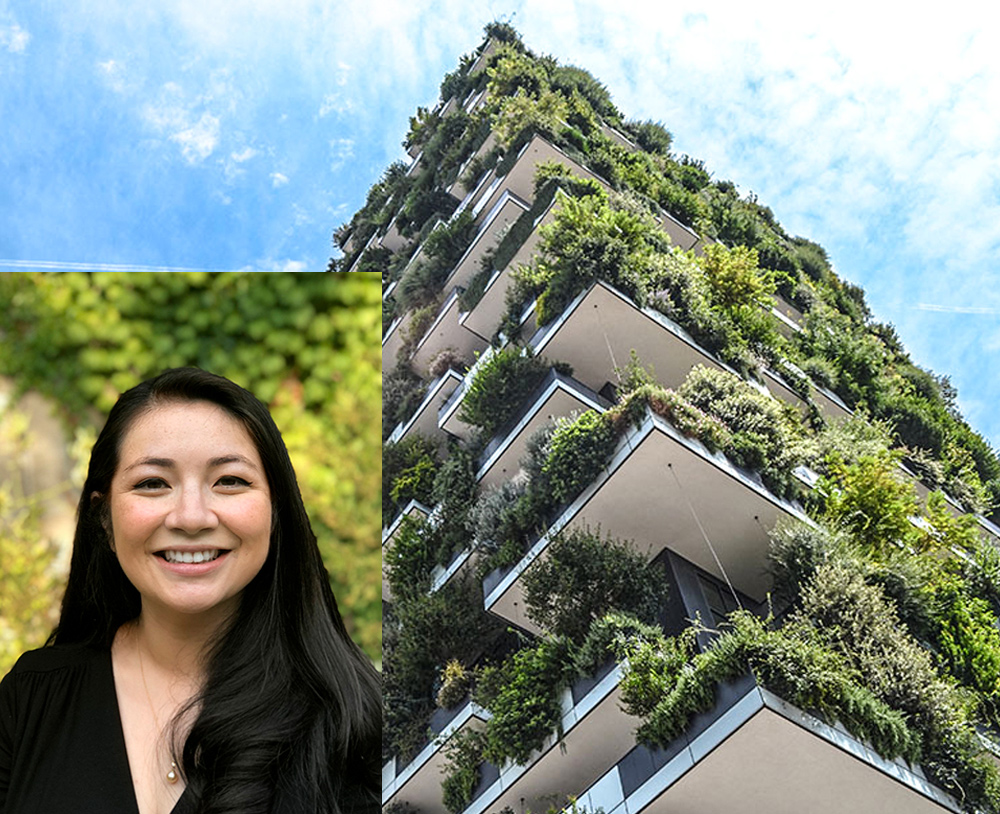
10.
In 2022, the SF State Foundation, which furnishes scholarships and financial support for programs helping students, made sweeping changes to its investment policy that deepen its commitment to social justice, environmental sustainability and climate change mitigation. The Foundation is taking steps to divest from fossil fuel companies by 2025, and it’s aiming for net-zero carbon emissions for its endowment investments by 2040.
11.
The Graduate Certificate in Sustainable Business program prepares managers and entrepreneurs to lead their organizations toward practices that are as equitable and green as they are profitable.
12.
SF State faculty members are conducting critical research into sustainability and the environment on many fronts. For instance, the Enright Lab — led by Assistant Professor of Chemistry and Biochemistry Michael Enright — studies the use of nanomaterials to manipulate sunlight and maximize solar conversion efficiency.
13.
As part of their summer professional development practicum course last year, Master of Public Health (MPH) students supported the South of Market Community Action Network (SOMCAN) in conducting a community needs assessment of air quality and traffic impacts in the South of Market neighborhood. Supervised by Public Health Lecturer Ruby N. Turalba and SOMCAN staff, the students provided a community-based participatory action research (CBPAR) training to residents, developed a comprehensive literature review, supported with Spanish translation, collected data at the Jessie Alley Street Fair and from elders affiliated with the Pilipino Senior Resource Center, as well as initiating preliminary data analysis. Assessment findings have been instrumental to SOMCAN’s community organizing and policy strategies.
14.
In 2022, the SF State Foundation, which furnishes scholarships and financial support for programs helping students, made sweeping changes to its investment policy that deepen its commitment to social justice, environmental sustainability and climate change mitigation. The Foundation is taking steps to divest from fossil fuel companies by 2025, and it’s aiming for net-zero carbon emissions for its endowment investments by 2040.
Features
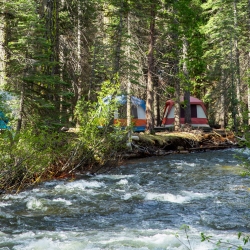
A River Runs Through It
In some ways SF State's best-kept secret, the Sierra Nevada Field Campus is a bastion of science, art and learning in the middle of the wilderness.
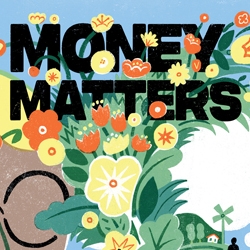
Money Matters
Forward-thinking alumni, students and faculty are demonstrating how investors can bankroll sustainability (and turn a profit doing it).
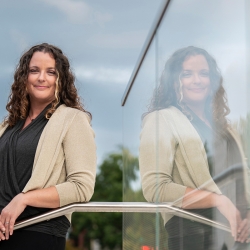
In Conversation with Ben Fong-Torres
The legendary journalist and Gator sits down for a talk with alumna Allison Crimmins, director of the federal government's Fifth National Climate Assessment.